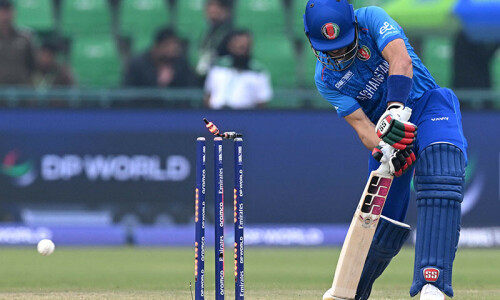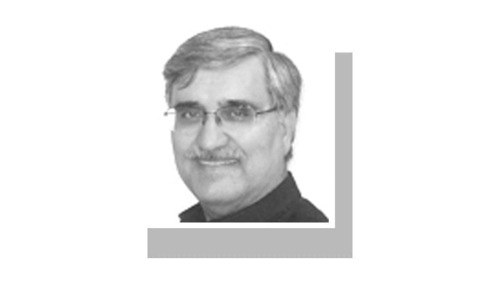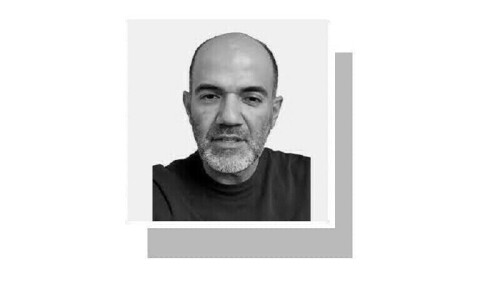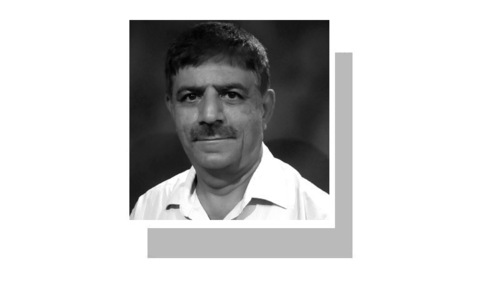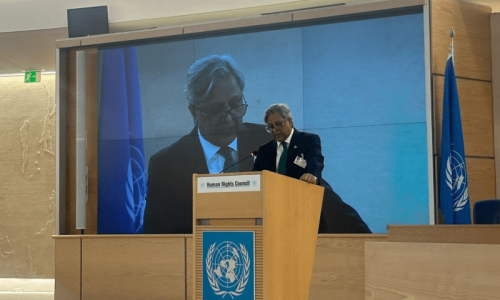
All Nisar Hussain wanted to do was to successfully climb Mount Everest. Like millions on this planet, he too had a dream; a dream to reach dizzying heights.
Hussain, in his early thirties, was a Pakistani climber who is presumed dead along with the expedition leader Austrian Gerfried Göschl and Swiss Cedric Hahlen on Gasherbrum I (Hidden Peak).
For Hussain, this was a special climb as he had joined the team as an ‘equal team member’ as opposed to the usual position of porter. Göschl, with whom he was friend since 2003, had also promised to help him with his Nepal trip in the future.
Facing the harshest of weather in the most godforsaken terrain, Hussain joined Goschl for a conquest of Gasherbrum with stars in his eyes.
Only a few days ago, a Polish team had climbed GI, its first ascent in winters and things looked positive for the trio. Sadly their quest ended in disaster. Bad weather, with winds reaching the speed of 150 kilometres per hour and temperatures plunging below minus 40 degrees, it seemed impossible. The three were last seen on March 9 some 250m below the summit and the search and rescue mission was finally called off on March 14 at the request of Göschl’s brother.
Not many Pakistanis are aware of the achievements of Hussain. Born on July 16, 1980, Hussain hailed from Sadpara, a remote village in Skardu known for its strong porters who assisted mountaineering expeditions that came to Pakistan.
From herding goats and yaks to help his parents with chores, he quit his studies after high school and joined his father to supplement the family income. Starting out as a mountain guide and high altitude porter (HAP), soon he was climbing with some of the most renowned climbers from all over the world.
“I still remember how he struggled to share his hopes with us due to his limited English vocabulary but we could all see that he dreamed big and was passionate about climbing.
His eyes shone like crazy when he discussed his plans. More than that, his enthusiasm and support made it easy for me and my friends to trek - and reading about his death makes me sad. I wish we remember Hussain as a hero in his own right. May his soul rest in peace,” said Sara K, a German-Pakistani who was part of a group that was guided by Hussain.
His big day came when he climbed GII (8,035m), his first 8,000m peak. On his website, a simply worded note describes what he felt:
“In 1999 I was hired by a South Korean Expedition to G-II (8,035m), led by Mr Lee Sang Bae, and it remained successful as well. It was my very first experience to be at an altitude of more than 8000m peak. As a small boy, the Koreans never believed me to have done Sia Kangri. At one point they were discussing about [sic] sending me back from the Base Camp as I was too young and inexperienced to attempt on [sic] an eight thousander. Before and even at the BC, I was tested in several ways if I was really fit and if I have some know-how of mountaineering. The day, when I returned from the Camp-I, they were happy and satisfied and apologised for demanding a replacement.”

Since then, there was no looking back for Hussain. He is one of the three Pakistanis, including Rajab Shah and Hasan Sadpara, to have climbed all the 8000m peaks in Pakistan without using supplemental oxygen, and that too multiple times.
Expressing grief about the tragedy, mountaineer Nazir Sabir and a former president of the Alpine Club Pakistan (ACP), recalled meeting Hussain on two or three occasions. “He was slim and athletic; a definite trait for any good climber but what made him stand out was his drive and passion. He was not the most articulate of men but he made up for it with his humbleness and positive attitude. He could have gone a long way but then again, with climbing there are certain risks that are there and we all know what they are.”
When questioned if there were any hopes for their survival, Sabir pointed out that it was impossible to survive at that altitude and given the ferocious weather that has been prevalent for the last few days, it is highly unlikely.
Having lived in the same village as Hussain, Hasan Sadapara, the second Pakistani after Sabir to have climbed Mount Everest, was a part of the rescue team that went looking for the three climbers.
“I have no words to express the loss of a young life. We hail from the same village and it was a privilege climbing with him on three occasions where we summitted the peaks together. The first time was in 2004 when we reached the summit of K2 together. It was the Golden Jubilee year celebrations of K2 and looking back now, I can see how much Hussain had achieved without any official patronage.”
Sadpara again teamed up with Hussain in 2006 to climb GI and GII in seven days and then later in 2008 to summit Nanga Parbat.
“The mobile network does not work in Sadpara and it took us a while to inform his family. His family is devastated, especially his brother who is also a HAP and was with him on many expeditions.”
For Hussain, climbing was more than a passion. It meant sustenance. It put meals on his table; it allowed him to provide for his family. As a HAP and guide, he often had to risk his life simply to provide for those who were dependent on him. In his case his wife, three young children and his close family members.
Unfortunately, despite his achievements, he remains virtually unknown to Pakistanis but there were lives he touched in a positive manner.
“There is no other sport in the world with such a high risk of life. All climbers know these risks but they still come back to these mighty mountains. We will have more winter accents of G1 in the years to come and Hussain’s soul will be happy to see them on the summit as they pay homage to the big mountains.” said Sohail Sadiq, an avid trekker.


